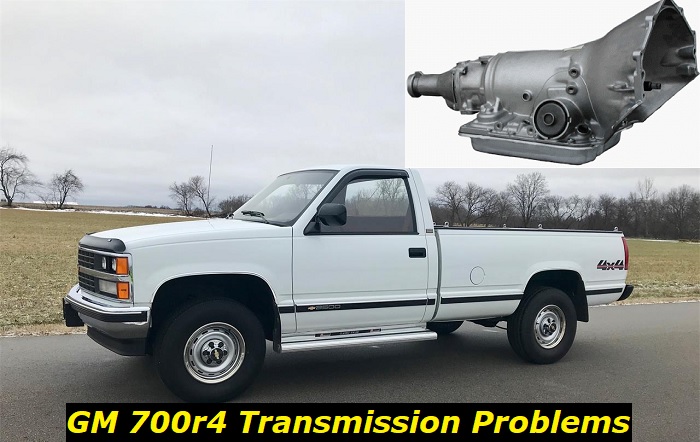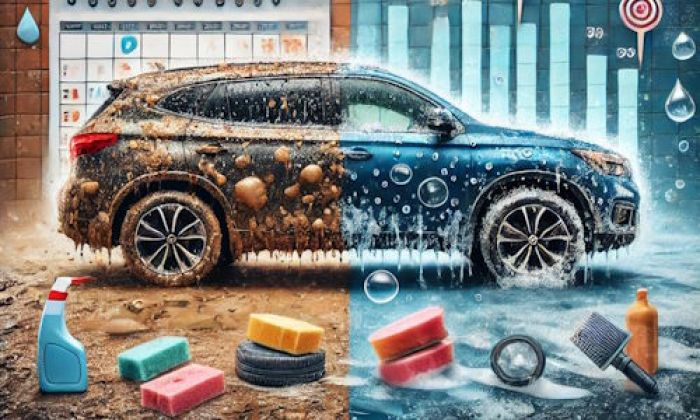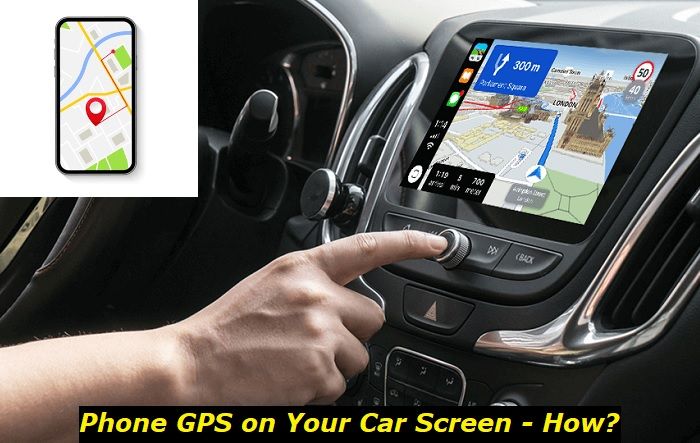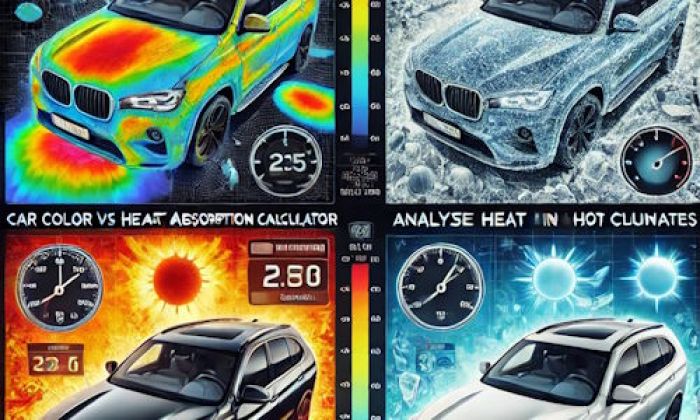The 700R4, one of the versions of the Turbo-Hydramatic or Turbo Hydra-Matic (THM) trademarked by General Motors (GM), is an automatic transmission designed to work primarily with trucks, sport utility vehicles (SUV), or sports cars.
700R4 (4L60) transmission highlights
- Average lifespan:230,000-250,000 miles
- Reliability Score:High
- Prone to minor issues:No
- Price for repair after failure:$1,000-$1,400
- Price for replacement:$2,500-$3,700
- Availability of parts:Good
- Common problems: Solenoid issues, friction plates wear, fluid pump issues, overheating problems.

Common Problems Causing the 700R4 to Lose Its Reverse Function
The reverse function of our vehicles is as important as their forward run. Having a no reverse operation will still let you drive your auto but it will limit your mobility. It will restrict your movement in tight situations or prevent you from immediately backing out from an object that suddenly blocked your path.
In this article, we will explore the different factors taking away the reverse function of the 700R4 in particular, which can also affect other types of transmissions.
The problems common to the 700R4 transmission that result in its loss of reverse operation are the following:
1. Insufficient or Poor Quality of Transmission Fluid
There are a few reasons why your 700R4 transmission may not be shifting into reverse. The most common cause is low or dirty transmission fluid, and this is what you should check first before blaming the problem on the other parts of your auto.
If the fluid level is low, it may not be reaching all the moving parts in the transmission. This can result in the gears not meshing properly, which will prevent the transmission from shifting into reverse.
If the transmission fluid is dirty, it may also be preventing the gears from interlocking properly. Dirty transmission fluid can cause a build-up of debris and sludge on the gears, which will prevent them from engaging correctly.
If the fluid is low or dirty, flush and refill the transmission with fresh fluid. These are things that you can easily do if you know your way around the location of the dipstick, reservoir, and drain plug of your transmission system.
If the problem persists, have the transmission inspected by a qualified technician to determine if there is internal damage causing either leaks or contamination of your transmission fluid.
2. Bad Transmission Selector Sensor
The transmission selector sensor is responsible for telling the transmission control unit (TCU) what gear the transmission is in. In an automatic transmission, the TCU uses this information to determine when to shift gears.
If the transmission selector sensor fails, it will send the wrong signal to the TCU. This can cause the transmission to shift gears at the wrong time or not shift gears at all.
A bad transmission selector sensor can therefore result in no reverse for the 700R4. Possible causes of this problem include a faulty sensor, a loose wiring connection, or a damaged TCM (transmission control module).
To fix this problem, you will need to diagnose and repair the underlying cause. This may involve replacing the sensor, tightening the wiring connection, replacing the damaged harness, or replacing the TCM.
3. Damaged Lockout Ring
The lockout ring is an essential component of an automatic transmission. It is responsible for engaging and disengaging the gears in the transmission. A damaged or defective lockout ring can result in the transmission not being able to activate the reverse gear.
The possible causes of this problem may include a damaged or defective input shaft, output shaft, or clutch assembly. Solutions to this problem include repairing or replacing the damaged component.
If you have a 700R4 transmission that is not engaging reverse gear, it is important to have it checked by a qualified transmission technician as soon as possible. Ignoring this problem could result in further damage to the transmission and expensive repairs.
4. Faulty Automatic Clutch
The automatic clutch is a component of the 700R4 transmission that is responsible for engaging and disengaging the gears. When the clutch is engaged, it connects the input shaft and the output shaft, allowing the car to move forward or backward. If the clutch is worn out or damaged, it can cause problems with gear engagement, which may result in the car not being able to go into reverse.
There are a few possible reasons why this may happen. First, the automatic clutch may be worn out and need to be replaced. This is a relatively simple fix that can be done by a qualified mechanic.
Another possibility is that something is blocking the movement of the automatic clutch. This could be something as simple as a piece of debris that has become lodged in the mechanism. Again, this is a relatively easy fix that can be done by a qualified mechanic.
Finally, it's possible that the problem is more serious and may require the replacement of the entire transmission. This is a more complex repair that should only be attempted by a qualified professional.
If you're experiencing problems with your 700R4 transmission, then it's important to take action as soon as possible. Ignoring the problem will only make it worse and could eventually lead to irreparable damage to your transmission. If you think there may be an issue with your automatic clutch, then the best course of action is to take your car to a qualified mechanic for diagnosis and repair.
5. Cracked Sun Shell
The sun shell is a metal housing that encases the planetary gears in an automatic transmission. The sun shell connects to the torque converter and allows the transmission to change gears.
A cracked sun shell can result in no reverse for the 700R4 transmission. This is because the planetary gears are not properly aligned, and they can slip out of place when the transmission is placed in reverse.
Possible causes of a cracked sun shell include manufacturing/rebuilding defects, improper installation, or damage from a foreign object. Possible solutions include replacing the sun shell, realigning the planetary gears, or rebuilding the transmission.
If you suspect that your transmission has a cracked sun shell, it is important to have it inspected by a qualified mechanic as soon as possible. Continuing to drive with a damaged sun shell can cause further damage to the transmission and may even lead to a complete failure of the system.
6. Worn Pressure Plates
The pressure plate in an automatic transmission system is responsible for pressing the clutch discs together so that torque can be transferred from the engine to the transmission. Over time, the pressure plate can become worn, causing it to lose its ability to effectively press the discs together. This can result in a loss of reverse gear, as well as other problems.
A worn pressure plate may likely lead to a damaged clutch disc or the failure of the transmission system itself. Therefore, aside from the replacement of the pressure plate, you may have to repair or replace the clutch disc or the entire transmission as well.
Remember to consult a qualified mechanic for the fix. With proper diagnosis and repair, you should be able to resolve this issue and get your car back on the road.
7. Broken Transmission Bands
The transmission bands are responsible for holding the gears in place as the transmission shifts between them. When one of the bands breaks, the gears can slip out of place, resulting in no reverse gear.
One key possible cause of a broken transmission band is simply wear and tear - over time, this part can weaken and break. Another possibility is that the bands were not properly installed in the first place. If they were not installed correctly, they may not be tight enough and can eventually break.
If you suspect that your transmission band is broken, the best course of action is to take your car to a mechanic or transmission specialist. They will be able to diagnose the problem and replace the broken band. In some cases, you may also need to have the gears replaced if they have been damaged.
8. Torque Converter Issues
The torque converter is a vital component of an automatic transmission system. Its function is to transfer rotational force from the engine to the transmission. In doing so, it allows the engine to continue running at its optimum speed, while the transmission can change gears as needed.
However, if there are issues with the torque converter, it can cause problems with the transmission, including no reverse. This can be a major problem, as it can render the vehicle unusable.
There are several possible causes of this problem. One is that the torque converter itself may be damaged or malfunctioning. Another possibility is that there is a problem with the fluid level in the torque converter. Another possibility is that there is something blocking the torque converter from functioning properly.
Fortunately, there are some potential solutions to this problem. One is to have the torque converter replaced. Having the fluid level in the torque converter checked and adjusted may also be the key in some cases.
Conclusion
The 700R4 transmission is one of the most reliable and durable transmissions on the market. It's for these reasons that it remains in demand in the market even though it has been two decades since its production ended.
However, like all mechanical parts, the automatic clutch in your 700R4 transmission can eventually wear out or become damaged. When this happens, it can cause many problems, one of which is that your car may not be able to go into reverse.
We hope that you will know what to do in case you end up encountering this specific issue in the 700R4 transmission using the information provided here. With any luck, one of these solutions will fix the no reverse problem and get your vehicle back up and running smoothly.
About the authors
The CarAraC research team is composed of seasoned auto mechanics and automotive industry professionals, including individuals with advanced degrees and certifications in their field. Our team members boast prestigious credentials, reflecting their extensive knowledge and skills. These qualifications include: IMI: Institute of the Motor Industry, ASE-Certified Master Automobile Technicians; Coventry University, Graduate of MA in Automotive Journalism; Politecnico di Torino, Italy, MS Automotive Engineering; Ss. Cyril and Methodius University in Skopje, Mechanical University in Skopje; TOC Automotive College; DHA Suffa University, Department of Mechanical Engineering






Add comment